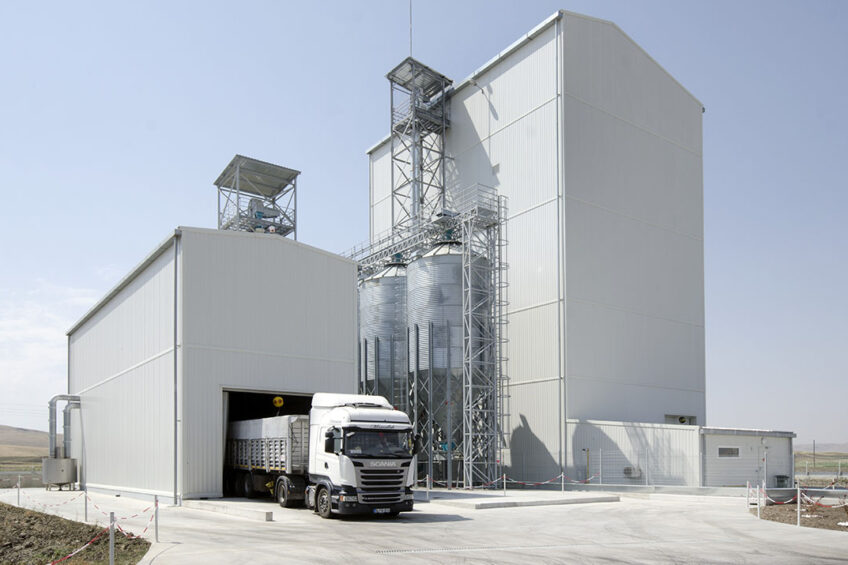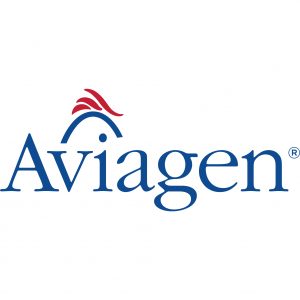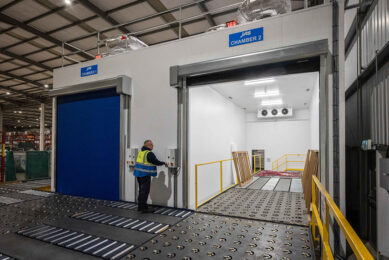4 ways to optimise poultry feed mill biosecurity

Aviagen specialist Richard Obermeyer shares advice for reducing pathogens before they have the chance to enter the food chain.
The four steps to poultry feed mill biosecurity are:
- Keep things dry
- Eliminate the spread of pathogens,
- Clean and disinfect,
- Pathogen-elimination
Step 1: Keep things dry
There are many vectors for pathogen transfer, and water is one. A biosecure feed processing facility is kept dry and free of any standing water at all times.
“Standing water should be avoided at all costs, as it becomes a bacterial pool and a major vector of both viruses and Salmonella,” he said. “Vehicles drive through the water, people walk through it, and birds, rodents and other animals drink from it, and that’s how pathogens spread.”
One area where water can collect is the vehicle disinfecting station. Vehicles entering a biosecure area should be washed before being disinfected, but water should not be allowed to collect inside the disinfection station. Inadequate drainage leads to standing water; because some disinfectants can dissipate within two to three hours of application, any residual water left standing can turn the disinfecting station into a bacterial reservoir. Obermeyer added that these disinfecting stations, along with any disinfection method, should be validated with frequent routine sampling to confirm their effectiveness.
Another area for potential water issues is the receiving pit, which must be dry and clean at all times. Pit and wheel path covers can be used to help minimise the possibility of water or other materials entering the pit; however, they should be monitored and maintained regularly. The pit should be small enough that vehicle wheels do not come into contact with it, and a funnel should be used during unloading to minimise spillage. Any spillage should be cleared up immediately and before any further vehicle movement in the receiving pit area.
Finally, it’s important that processing and storage areas are designed to keep rain and moisture away from the material handling and storage equipment.
Step 2: Eliminate other pathogen vectors
Dust, rodents, wild birds, vehicles and foot traffic are also potential spreaders of bacteria and viruses.
“Salmonella thrives on organic material such as dust,” Obermeyer explained, because it provides food and an effective means for potential cross-contamination if contaminated dust enters biosecure areas.
Rodents, insects and birds are all hosts for bacteria and viruses, he added, once pathogens are ingested, they will then be spread throughout the milling facility. Once these pests take up residence, it is very difficult to completely eliminate them. So, the main focus should be to keep them out from the beginning.” Open buildings are an invitation for rodents and wild birds to take up residence, so they should always be closed and secured with appropriate bird and rodent proofing procedures.
The day-to-day movement of people and vehicles can also spread pathogens throughout the feed mill. It is especially important to separate vehicles carrying raw materials from all other facility traffic. “Raw material delivery drivers should be prevented from accessing the feed milling facility” Obermeyer commented, and they should have a separate waiting area and restrooms. The facility should direct the flow of raw material traffic using signage with specific instructions for delivery drivers. Gates, fencing, and locked doors also help to keep employees, as well as visitors, in their respective areas.
Step 3: Clean and disinfect
All surfaces of the feed mill, including walls, bins, and floors, should be regularly cleaned. A properly managed feed mill sanitisation programme includes these important steps:
- Clear out all unnecessary equipment, packaging and waste from floors and walls.
- Remove debris and dust, eliminating spider webs and removing dust from mill walls, ledges and equipment such as electric motors. Richard explained that this step must be done by hand, using brushes, scrapers, shovels, brooms, and a vacuum to remove the dust particles. Remember not to use water, which allows for bacterial growth, or compressed air for this step as this disseminates dust and potential pathogens through the mill environment.
- Ensure that floors, walls, equipment and machinery is clean and dry.
- Disinfect with a method that contacts all surfaces such as fumigation (requiring specialised training and compliance with local legislation), thermal fog, and ozone generators. Aerosols and alcohols can also be used. Keep in mind that all disinfectants require a defined contact time to be effective. Familiarise yourself with the requirements of the disinfectant, including contact time, humidity and effective temperature ranges.
Step 4: Eliminate pathogens
Richard concludes that, “A true biosecurity plan really requires a ‘pathogen-elimination step.’” Steps 1-3 are designed to prevent pathogens from re-contaminating the finished feed. In the unlikely event that pathogens were able to contaminate the feed, this step provides additional assurance in eradicating Salmonella from the finished feed. While many pathogen-elimination methods are available, Aviagen uses direct heat treatment at a temperature of 86°C (187°F) for six minutes at 15% relative humidity.
Securing the global food supply
Richard added that continually improving your biosecurity programme will further reduce pathogen risk, maximising the quality of feed delivered. “By controlling everything within your power, you are knowingly eliminating all pathogens in your feed before it’s shipped, doing your part to keep them out of the food chain. Biosecure feed is an important part of poultry production, helping the world’s producers put food on the tables of families around the world.”






